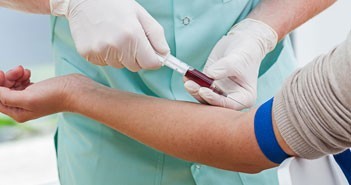A clinical biomarker assay to quantitate thymic stromal lymphopoietin in human plasma at sub-pg/ml level

Background: Thymic stromal lymphopoietin (TSLP) is an attractive therapeutic target for the treatment of allergic diseases, and plasma TSLP is a potential patient selection marker in the development of therapeutic agents. Results: We developed and validated an ultrasensitive electrochemiluminescence assay for measurement of TSLP in plasma with a lower limit of quantitation of 0.12 pg/ml, which allowed the quantitation of TSLP in approximately 90% of human plasma samples tested. The assay demonstrated excellent performance characteristics, including precision, accuracy, sensitivity and dilution linearity. Stability and biological variability of TSLP in plasma were also assessed for clinical sample analysis and data interpretation. Conclusion: The validated TSLP assay enables assessment of circulating TSLP as a patient selection marker in the development of therapeutics to treat atopic diseases.
Atopic diseases, such as atopic dermatitis (AD), allergic rhinitis and asthma, share similar genetic and environmental risk factors. In the progression of atopic disorders termed the ‘atopic march,’ following the initial onset of AD, a substantial population of patients then develops allergic rhinitis and finally develops asthma [1–4]. A large body of evidence suggests that thymic stromal lymphopoietin (TSLP) is a master regulator in the initiation, propagation and maintenance of allergic inflammatory responses associated with AD and the atopic march [5–11].
Click here for the full article.






